Even the Doctor Cried for Us
South Sudan’s Brewing Hunger Crisis Escalates
Haiwa Suleiman is trying to survive in a refugee camp for displaced Sudanese with her children. She and her family left everything behind when they were forced to flee Khartoum suddenly as war broke out last April.
When bombs rained down from the sky, she and her husband became separated. Haiwa kept running with her children and eventually made her way with them to this camp. There’s been no word on her husband’s whereabouts. She has no idea if he’s still alive. Since then, Haiwa has been on her own with her kids.
There is not enough food in the camp and she tries in vain to make a meal for her children from what remains of a tin of wheat. Their ration is one meal per day, which she divides in half so her children can have a few bites in the morning and a few in the evening, not enough to survive for very long.
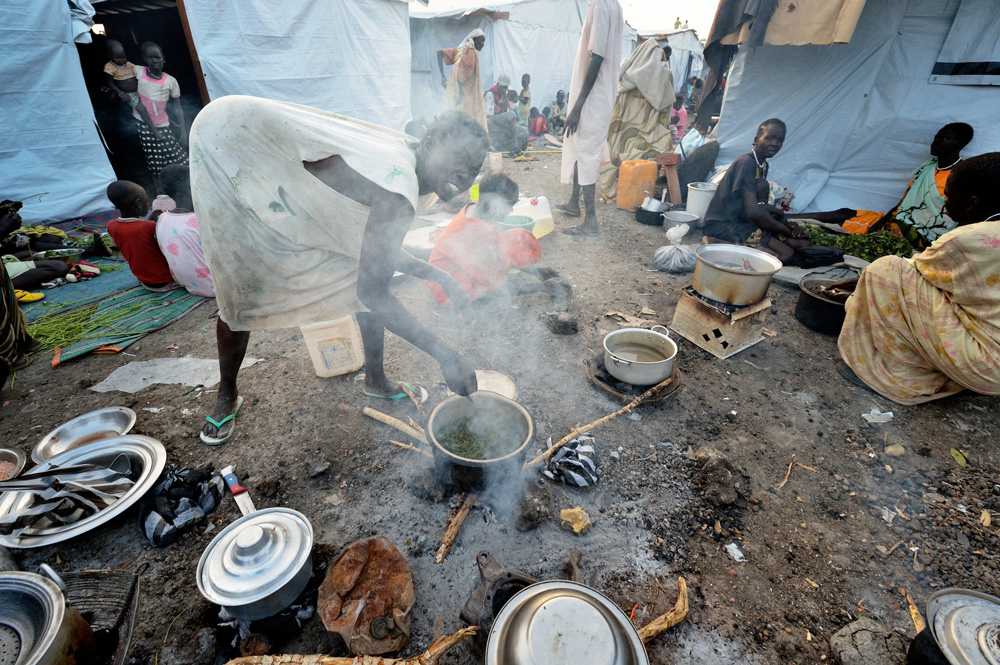
One ration per day is split between an entire family.
Haiwa divides hers in half so her children can eat a few bites twice a day.
Recently one of her children was suffering badly from food poisoning and needed medicine to recover. But Haiwa had no ability to pay for it. Fortunately, a good Samaritan stepped in and purchased the antibiotics for her.
“The doctor herself cried over our condition,” said Haiwa. “We are exhausted. Our suffering has gone beyond all limits.”
Now she waits. Waiting to see if her children will survive another day in the camp. Waiting to learn if her husband survived. Waiting for the fighting to stop so she can return home, wondering what she would return to. Waiting for help before she and her children grow severely malnourished in this place. There is nothing else they can do.
Ominous Headlines
Urgent headlines shed light on what the crisis looks like as South Sudan is driven deeper into food insecurity. Tragically, humanitarian aid is being slashed to this country at the very time the hunger crisis is worsening.
- Hunger and malnutrition are at ‘historically high levels’ in South Sudan – World Food Programme
- 9.4 million people, including 5 million children…will require humanitarian assistance – UNICEF
- “In 2024 South Sudan will face significant humanitarian needs alongside drastic cuts to aid” – UNICEF
- South Sudan faces a severe humanitarian crisis unless immediate action [is] taken” -UN News
2024 bodes ominously for 2 out of every 3 people in South Sudan reeling under its current hunger crisis. Here are some of the adversities facing the nation all at once:
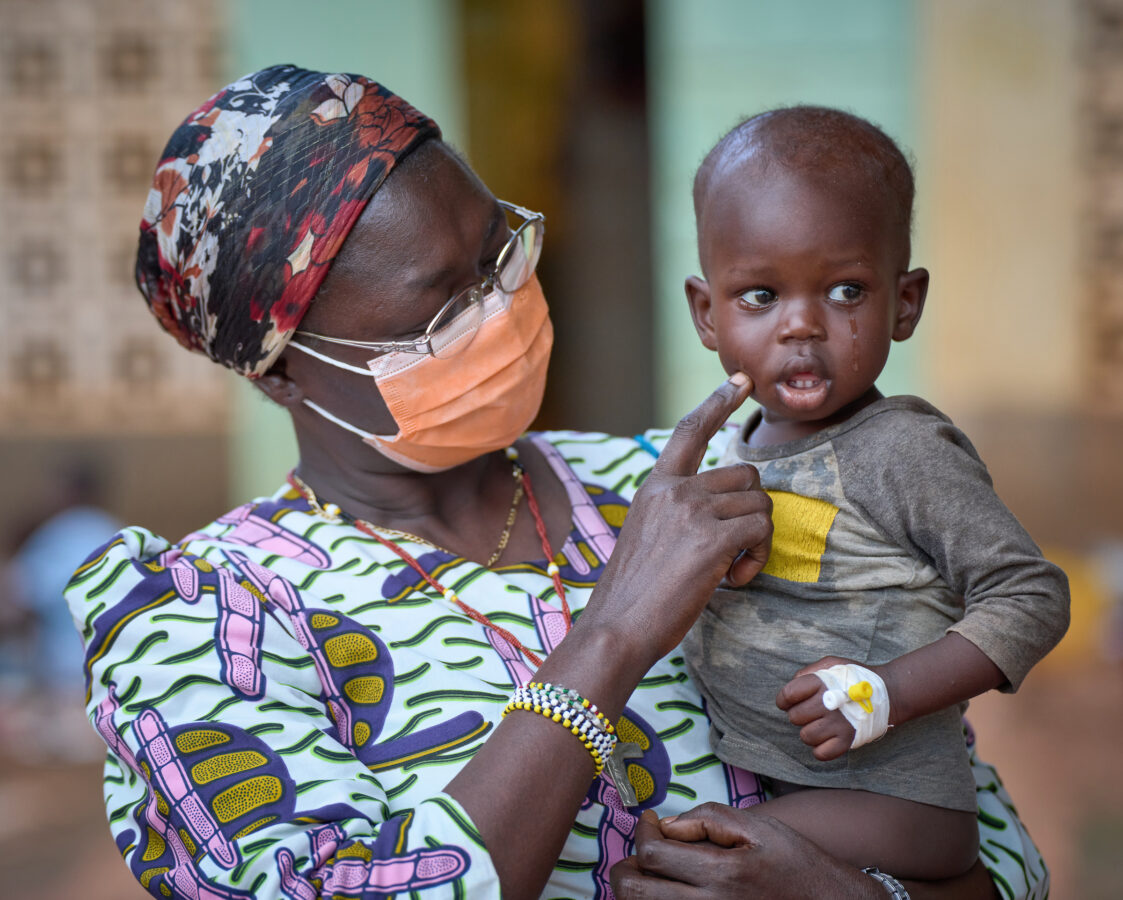
Experts fear 2 million children under age 5 will suffer severe wasting in 2024,
the worst form of malnutrition that leaves children vulnerable to sickness, developmental delays and death.
How Did We Get Here

4 YEARS
consecutive floods & drought

9 Million
people facing starvation

59%
reduction in aid
Sitting at the center of the continent, South Sudan is situated in the heart of Africa – a crucial location where a vortex of internal and external forces have converged on a young and fragile nation for consecutive years. Any of these events would be individually destructive, but coming with combined force, the result is one of the worst humanitarian hunger crises developing in the world today.
Drastic Cuts in Aid
Cuts from world food programs couldn’t come at a worse time, on the heels of weather disasters, lost crops, and increased demand by surges of refugees flooding the country’s northern region, stretching an already meager food supply.
“South Sudan will face a complex year in 2024 with increasing vulnerability, growing humanitarian needs, and severe aid budget cuts,” says UNICEF.
Further, NGOs normally providing hunger assistance have almost completely left South Sudan, citing it’s no longer safe. BBC calls it “the most dangerous place in the world for humanitarian workers.” But we remain committed to standing alongside the people through this hunger crisis, when those we serve are in greatest need.
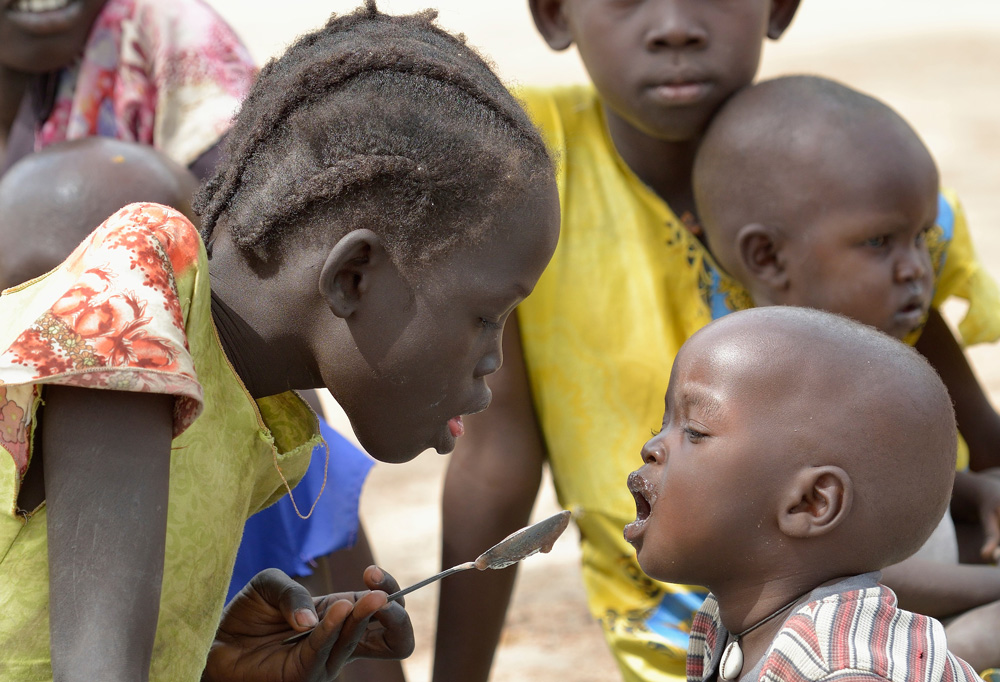
Hundreds of thousands flee war in Sudan to a country already facing severe hunger.
9 million people need immediate emergency food assistance.
Floods and Drought
The Food and Agricultural Association of the United Nations reports that back-to-back “floods, dry spells and droughts” have severely affected South Sudan’s food supply. “With up to 95 percent of the population dependent on agriculture, urgent humanitarian support is needed to avert catastrophe.”
Surge of Refugees
The UN Refugee agency says it expects over 1.8 million people fleeing Sudan to arrive in neighboring countries by year-end – double the number originally projected. South Sudan is expected to see at least one third of those refugees.
Already over 450,000 refugees have crossed over South Sudan’s border. Most arrive destitute or nearly so, having left everything behind, or having what little they could carry on the perilous escape route. As a result, they’re completely dependent on food support.
Soaring Food Prices
In a nation where 82 percent of people live in poverty, soaring food prices mean 90 percent of families neither have adequate food supplies to eat nor the means to buy any.
UNICEF warns in 2024 more than 60 percent of South Sudan’s population is expected to be acutely food insecure, and 2 million lactating women and children under age 5 will suffer from wasting – the most visible and life threatening form of malnutrition. Severe wasting weakens the immune system, leaving children vulnerable to disease, developmental delays, and death.
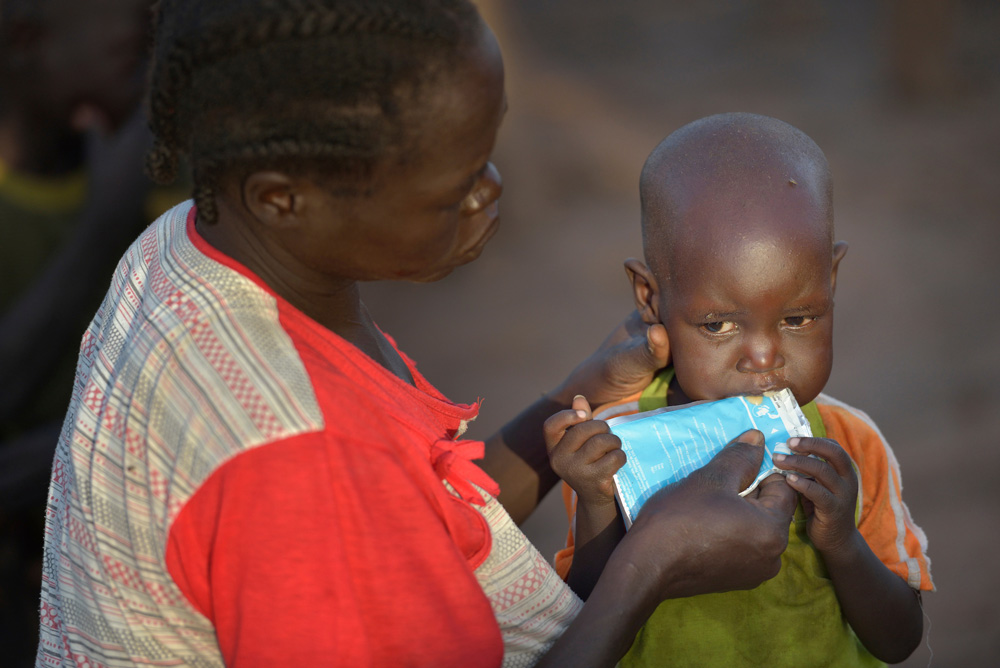
While many organizations have pulled out, Sudan Relief Fund is staying on the ground
to fight widespread sickness and starvation.
War in Israel and Red Sea Shipping Crisis
Aid efforts diverted to the fighting between Israel and Hamas have overshadowed the humanitarian crisis in South Sudan. Transportation routes complicated by the shipping crisis in the Red Sea further restrict the transport of goods and worsen food insecurity.
The World Looks the Other Way?
UNICEF representative, Mandeep O’Brien, told BBC, “a humanitarian crisis is looming,” and it must stop “for the sake of children and the future of [this country].” She warned if there is not adequate intervention by the end of this year “we believe the situation will be catastrophic.”
Immediate action is needed to prevent hunger from escalating into widespread sickness and starvation. This crisis can be averted. The world must turn its eyes to the catastrophe unfolding. Haiwa and her children’s story is just one of thousands of other family’s like hers.
Urgent Help Needed Now
Our teams are on the ground in key locations, ready to distribute food relief where it is needed. We’re bringing lifesaving food to orphanages, refugee camps, and communities in distress. Despite other organizations pulling out, our teams are committed to staying through this hunger crisis. The need is tremendous, but with your partnership we have the means to help.
If you and your family have food to eat today, as many in the developed world do, imagine the plight of thousands who don’t. Imagine the fear, despair, and helplessness that grips these families. Then imagine what your gift would mean if they could eat today because of you.
Please partner with us to fund this critical lifesaving effort now. Every gift makes a difference when you have nothing to eat.
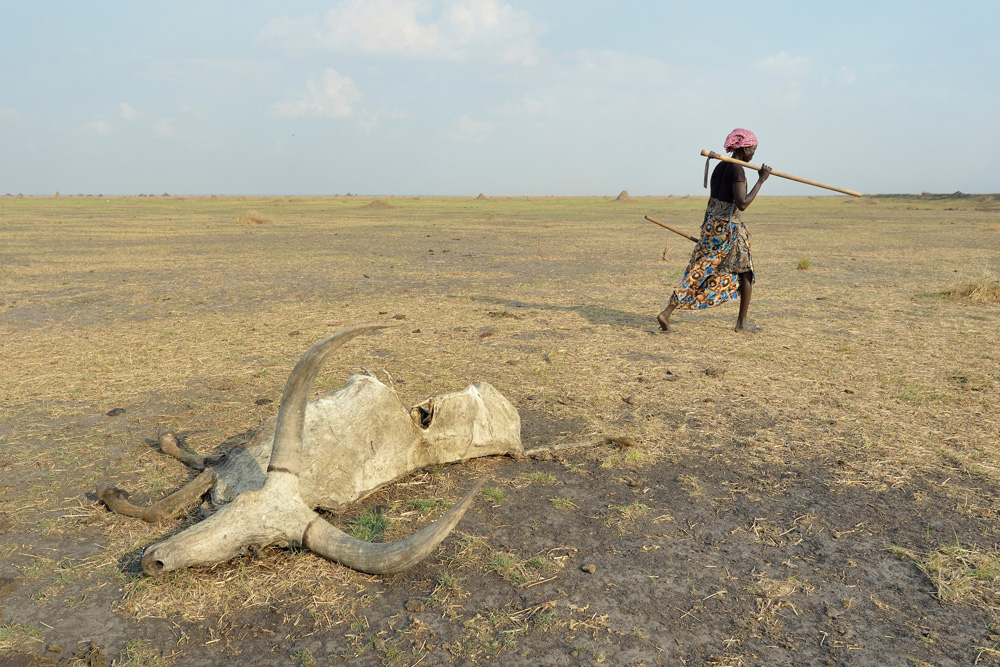
Disastrous events decimated South Sudan’s food supply.
The UN calls it the world’s worst humanitarian crisis today.
PS – Please don’t wait to help. Widespread hunger is raging and worsening daily. Time is critical. Help us save families in desperate need. Your gift makes a world of difference.
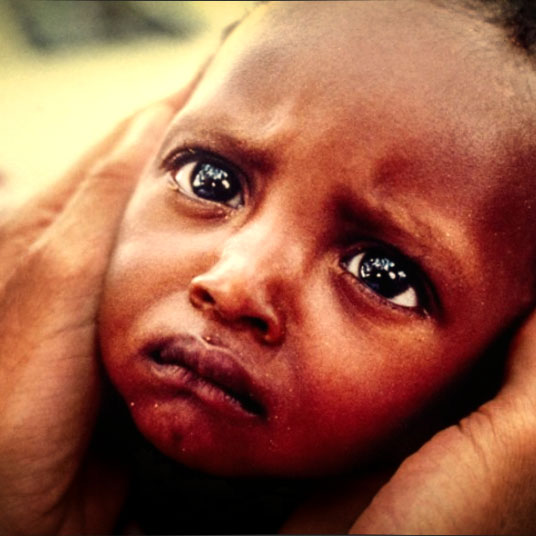 Increase Your Gift at No Extra Cost!
Increase Your Gift at No Extra Cost!
Did you know you may be able to double the amount of your gift without giving an additional dollar of your own? Thousands of companies participate in Corporate Match programs. This means they match dollar-for-dollar the amount their employees donate to charitable organizations – doubling your gift! Imagine creating twice the impact of your contribution.
Learn more about the Corporate Match Program.






